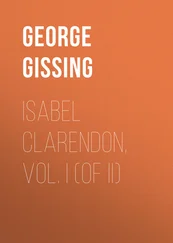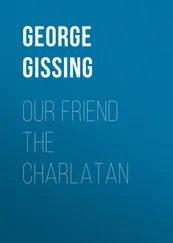George Gissing - Born in Exile
Здесь есть возможность читать онлайн «George Gissing - Born in Exile» — ознакомительный отрывок электронной книги совершенно бесплатно, а после прочтения отрывка купить полную версию. В некоторых случаях можно слушать аудио, скачать через торрент в формате fb2 и присутствует краткое содержание. Жанр: foreign_prose, literature_19, foreign_antique, на английском языке. Описание произведения, (предисловие) а так же отзывы посетителей доступны на портале библиотеки ЛибКат.
- Название:Born in Exile
- Автор:
- Жанр:
- Год:неизвестен
- ISBN:нет данных
- Рейтинг книги:3 / 5. Голосов: 1
-
Избранное:Добавить в избранное
- Отзывы:
-
Ваша оценка:
- 60
- 1
- 2
- 3
- 4
- 5
Born in Exile: краткое содержание, описание и аннотация
Предлагаем к чтению аннотацию, описание, краткое содержание или предисловие (зависит от того, что написал сам автор книги «Born in Exile»). Если вы не нашли необходимую информацию о книге — напишите в комментариях, мы постараемся отыскать её.
Born in Exile — читать онлайн ознакомительный отрывок
Ниже представлен текст книги, разбитый по страницам. Система сохранения места последней прочитанной страницы, позволяет с удобством читать онлайн бесплатно книгу «Born in Exile», без необходимости каждый раз заново искать на чём Вы остановились. Поставьте закладку, и сможете в любой момент перейти на страницу, на которой закончили чтение.
Интервал:
Закладка:
He had small, hard lips, indifferent teeth (seldom exhibited), a prominent chin, a long neck; his body was of firm, not ungraceful build. Society's evening uniform does not allow a man much scope in the matter of adornments; it was plain, however, that Godwin no longer scorned the tailor and haberdasher. He wore a suit which confidently challenged the criticism of experts, and the silk socks visible above his shoes might have been selected by the most fastidious of worldlings.
When he had sat there for some minutes, his eyes happened to stray towards Miss Moxey, who was just then without a companion. Her glance answered to his, and a smile of invitation left him no choice but to rise and go to a seat beside her.
'You are meditative this evening,' she said, in a voice subdued below its ordinary note.
'Not very fit for society, to tell the truth,' Godwin answered, carelessly. 'One has such moods, you know. But how would you take it if, at the last moment, I sent a telegram, "Please excuse me. Don't feel able to talk"?'
'You don't suppose I should be offended?'
'Certainly you would.'
'Then you know less of me than I thought.'
Her eyes wandered about the room, their smile betokening an uneasy self-consciousness.
'Christian tells me,' she continued, 'that you are going to take your holiday in Cornwall.'
'I thought of it. But perhaps I shan't leave town at all. It wouldn't be worth while, if I go abroad at the end of the year.'
'Abroad?' Marcella glanced at him. 'What scheme is that?'
'Haven't I mentioned it? I want to go to South America and the Pacific islands. Earwaker has a friend, who has just come back from travel in the tropics; the talk about it has half decided me to leave England. I have been saving money for years to that end.'
'You never spoke of it—to me, Marcella replied, turning a bracelet on her wrist. 'Should you go alone?'
'Of course. I couldn't travel in company. You know how impossible it would be for me to put up with the moods and idiosyncrasies of other men.'
There was a quiet arrogance in his tone. The listener still smiled, but her fingers worked nervously.
'You are not so unsocial as you pretend,' she remarked, without looking at him.
'Pretend! I make no pretences of any kind,' was his scornful answer.
'You are ungracious this evening.'
'Yes—and can't hide it.'
'Don't try to, I beg. But at least tell me what troubles you.'
'That's impossible,' Peak replied, drily.
'Then friendship goes for nothing,' said Marcella, with a little forced laugh.
'Yes—in all but a very few human concerns. How often could you tell me what it is that prevents your taking life cheerfully?'
He glanced at her, and Marcella's eyes fell; a moment after, there was a suspicion of colour in her cheek.
'What are you reading?' Peak asked abruptly, but in a voice of more conventional note.
'Still Hafiz.'
'I envy your power of abstraction.'
'Yet I hear that you are deeply concerned about the locomotive powers of the diatomaceaoe ?'
Their eyes met, and they laughed—not very mirthfully.
'It preserves me from worse follies,' said Peak. 'After all, there are ways more or less dignified of consuming time'—
As he spoke, his ear caught a familiar name, uttered by Christian Moxey, and he turned to listen. Moxey and Earwaker were again talking of the Rev. Bruno Chilvers. Straightway disregarding Marcella, Peak gave attention to the men's dialogue, and his forehead wrinkled into scornful amusement.
'It's very interesting,' he exclaimed, at a moment when there was silence throughout the company, 'to hear that Chilvers is really coming to the front. At Whitelaw it used to be prophesied that he would be a bishop, and now I suppose he's fairly on the way to that. Shall we write letters of congratulation to him, Earwaker?'
'A joint epistle, if you like.'
Mr. Morton, who had brightened since dinner, began to speak caustically of the form of intellect necessary nowadays in a popular clergyman.
'He must write a good deal,' put in Earwaker, 'and that in a style which would have scandalised the orthodox of the last century. Rationalised dogma is vastly in demand.'
Peak's voice drew attention.
'Two kinds of books dealing with religion are now greatly popular, and will be for a long time. On the one hand there is that growing body of people who, for whatever reason, tend to agnosticism, but desire to be convinced that agnosticism is respectable; they are eager for anti-dogmatic books, written by men of mark. They couldn't endure to be classed with Bradlaugh, but they rank themselves confidently with Darwin and Huxley. Arguments matter little or nothing to them. They take their rationalism as they do a fashion in dress, anxious only that it shall be "good form". Then there's the other lot of people—a much larger class—who won't give up dogma, but have learnt that bishops, priests, and deacons no longer hold it with the old rigour, and that one must be "broad"; these are clamorous for treatises which pretend to reconcile revelation and science. It's quite pathetic to watch the enthusiasm with which they hail any man who distinguishes himself by this kind of apologetic skill, this pious jugglery. Never mind how washy the book from a scientific point of view. Only let it obtain vogue, and it will be glorified as the new evangel. The day has gone by for downright assaults on science; to be marketable, you must prove that The Origin of Species was approvingly foreseen in the first chapter of Genesis, and that the Apostles' Creed conflicts in no single point with the latest results of biblical criticism. Both classes seek to avoid ridicule, and to adapt themselves to a standard of respectability. If Chilvers goes in for the newest apologetics, he is bound to be enormously successful. The man has brains, and really there are so few such men who still care to go into the Church.'
There was a murmur of laughing approval. The speaker had worked himself into eloquent nervousness; he leaned forward with his hands straining together, and the muscles of his face quivering.
'And isn't it surprising,' said Marcella, 'in how short a time this apologetic attitude has become necessary?'
Peak flashed a triumphant look at her.
'I often rejoice to think of it!' he cried. 'How magnificent it is that so many of the solemn jackasses who brayed against Darwin from ten to twenty years ago should live to be regarded as beneath contempt! I say it earnestly: this thought is one of the things that make life tolerable to me!'
'You have need of charity, friend Peak,' interposed Earwaker. 'This is the spirit of the persecutor.'
'Nothing of the kind! It is the spirit of justified reason. You may say that those people were honestly mistaken;—such honesty is the brand of a brainless obstructive. They would have persecuted, but too gladly! There were, and are, men who would have committed Darwin to penal servitude, if they had had the power. Men like Lyell, who were able to develop a new convolution in their brains, I respect heartily. I only speak of the squalling mass, the obscene herd of idiot mockers.'
'Who assuredly,' remarked Earwaker, 'feel no shame whatever in the retrospect of their idiocy. To convert a mind is a subject for high rejoicing; to confute a temper isn't worth the doing.'
'That is philosophy,' said Marcella, 'but I suspect you of often feeling as Mr. Peak does. I am sure I do.'
Peak, meeting an amused glance from the journalist, left his seat and took up a volume that lay on one of the tables. It was easy to see that his hands shook, and that there was perspiration on his forehead. With pleasant tact, Moxey struck into a new subject, and for the next quarter of an hour Peak sat apart in the same attitude as before his outburst of satire and invective. Then he advanced to Miss Moxey again, for the purpose of taking leave. This was the signal for Earwaker's rising, and in a few minutes both men had left the house.
Читать дальшеИнтервал:
Закладка:
Похожие книги на «Born in Exile»
Представляем Вашему вниманию похожие книги на «Born in Exile» списком для выбора. Мы отобрали схожую по названию и смыслу литературу в надежде предоставить читателям больше вариантов отыскать новые, интересные, ещё непрочитанные произведения.
Обсуждение, отзывы о книге «Born in Exile» и просто собственные мнения читателей. Оставьте ваши комментарии, напишите, что Вы думаете о произведении, его смысле или главных героях. Укажите что конкретно понравилось, а что нет, и почему Вы так считаете.












